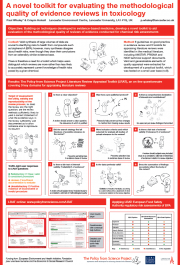We are contributing authors to a new publication which, we hope, presents a coherent framework for using existing evidence to classify chemicals as EDCs. The devil will be in the detail, of course, but one of the major contributions the paper makes is its clear and structured guidance for weighing evidence (or as we prefer to call […]







